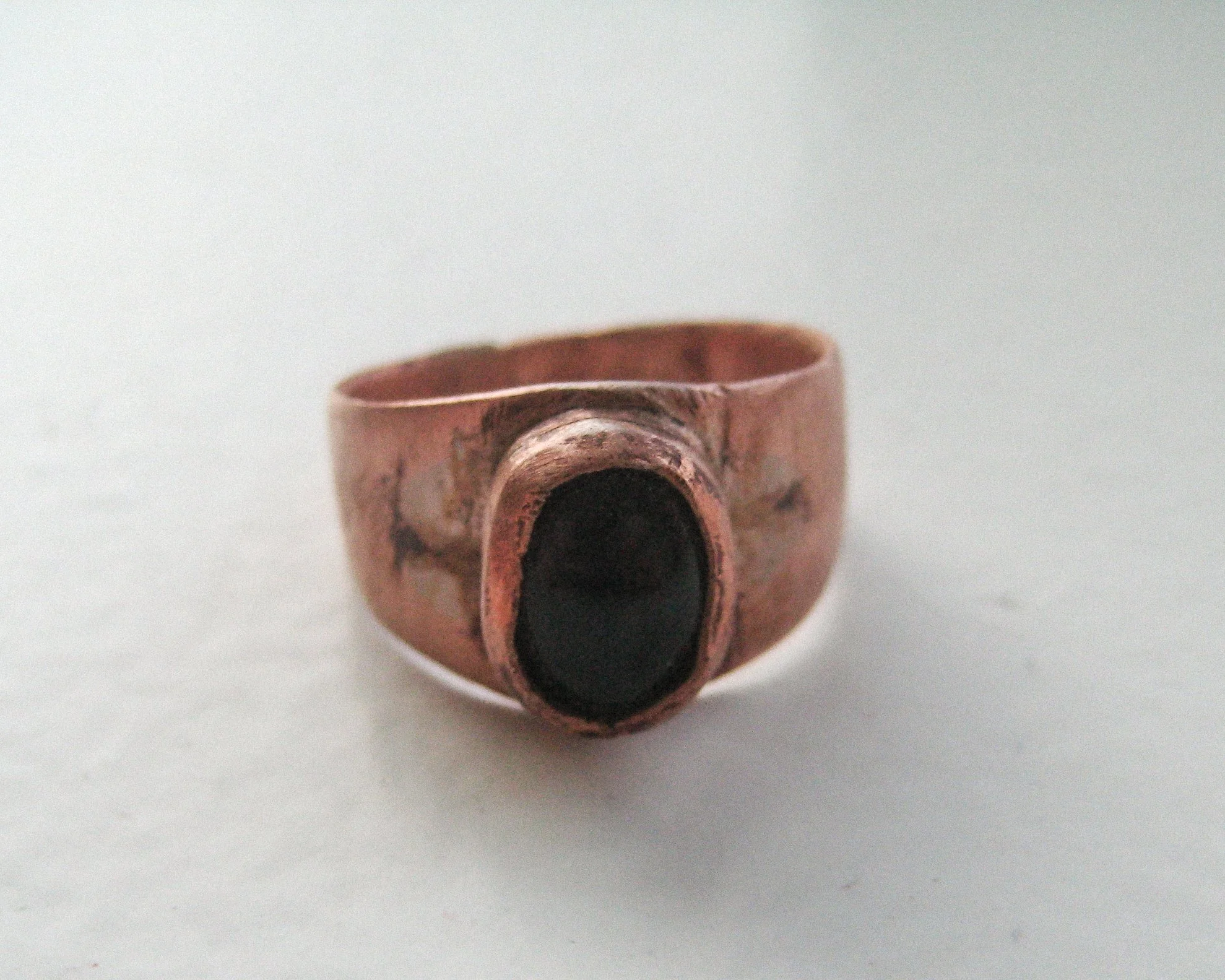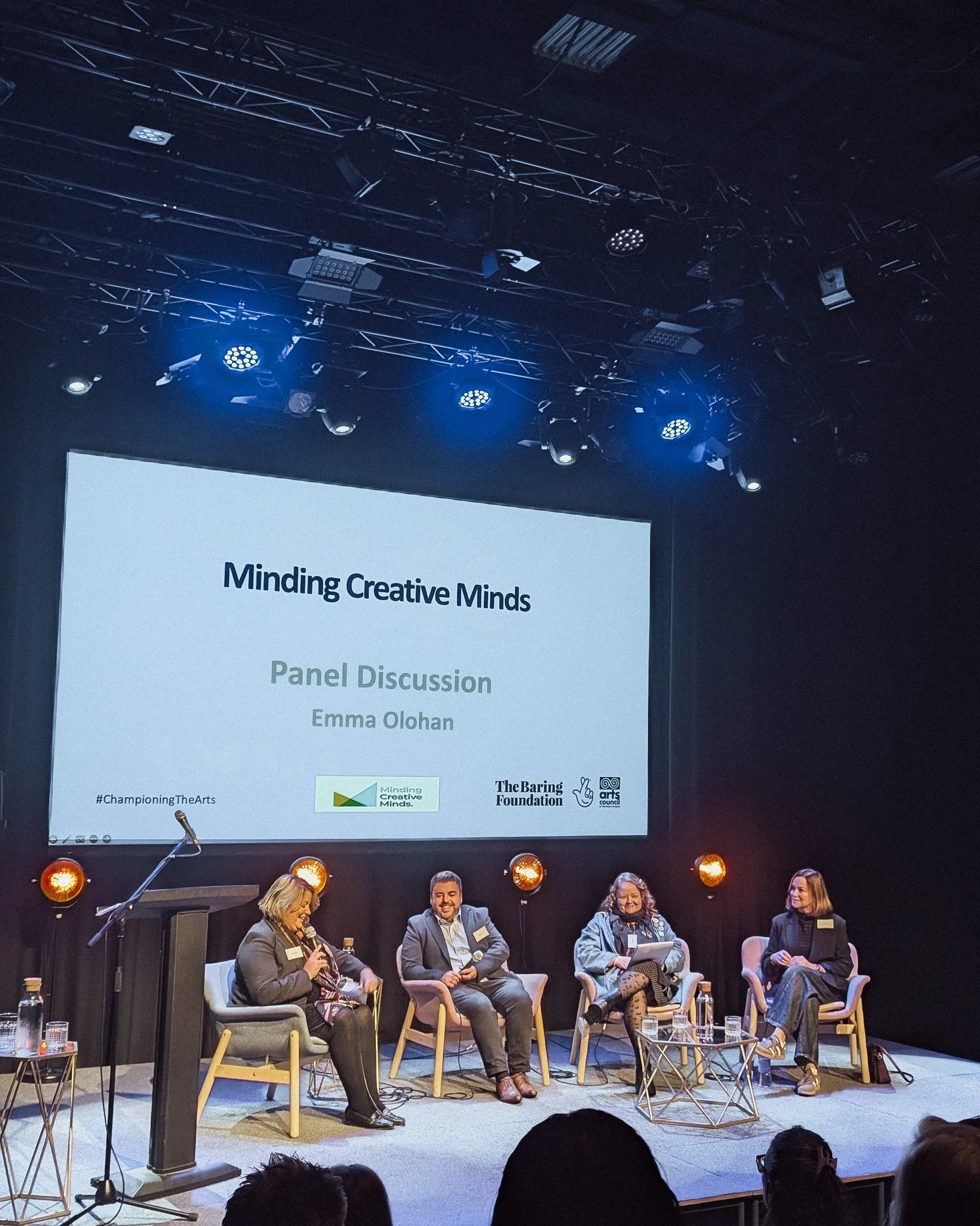The "cringe element" of authentic work
/Do you ever feel slight embarrassment when looking back at your old work? Especially the one you thought back then was pretty good? I know I do. And I know I’m not alone. A few things happened lately that made me think (and Google) what is it that hides behind the cringe when you re-read your old blog posts, academic essays or look back at your art.
This is the first ever ring I made. I had no clue what I was doing, I had only a book borrowed from a local library with descriptions and words I never knew before and some very basic tools. I’m actually quite proud knowing that people in my workshops don’t need to struggle half as much as I did.
No cringe here, this is a battle scar I wear proudly today!
Situation no 1: It was Saturday morning, and I was looking for two rings I wanted to bring into the workshop as examples of work that could be done. As I’m terribly disorganised when it comes to past and not-worn jewellery, I had to go through several boxes and drawers to find the right ones. During that search, many pieces resurfaced. Most of them I made and put into a dark place to rest, as I couldn’t get over the immediate cringe I felt when they were finished. Spoiler, with time put between us, they are not bad at all. I think I might repolish and wear some of them, maybe even put them up for sale.
Situation no 2: I read guidance for funding application, where they encouraged us to think of ALL academic successes that might be relevant to the research. I remembered that after finishing my Psychology degree, I was asked to share the abstract of my research project as it would be added to the university’s repository of examples for future students. I was flattered at that point and gladly agreed. I never checked if they actually published it or not. Until yesterday. I don’t think that the expression “mixed emotions” covers it. Reading that abstract, knowing there have been hundreds of people looking at it, having my name on it, felt a bit… ehm… awkward. Of course, I would have done a better job if I were writing it today, but on the other hand, it stands fairly well next to other students’ work. It feels such a long time ago, as if a different person wrote it, and still I can recognise my own voice in it, and that voice was nowhere near as confident as I wished it were.
So what is it about the work we produce? Where is the embarrassment coming from? Does it change with time into compassion? Are there people who are consistently proud or at least at peace with everything they have ever made?
I think it often happens in the arts that people feel their artworks reveal more about them than they planned to share. There is a moment in which the maker’s soul touches the finished work and makes it human, relatable. But also imperfect in the sense that every person has their shadow side that gives them depth and complexity. Something we are keen to hide or even reject. It seems to me that every genuine engagement with work needs to cross the divide between the maker and the made, and as such, they both bleed into each other and leave traces. Often unconscious, but they are there, and when we look back at our work, we recognise them. And we feel it. And it might not always be pleasant.
There is only one way to avoid discomfort. By never creating anything, and if so, then making it as impersonal, generic, glossed over and polished through layers of masks that it wouldn’t touch anything in our souls (sounds like AI, doesn’t it?). But then the question is, why bother doing this at all?
And I wonder if there is a therapeutic or a coaching element in approaching the work, recognising the uncomfortable feelings and exploring them intentionally. What is it that makes me cringe? Why is that? Once I work through it, will compassion and acceptance replace discomfort?
What do you think?






